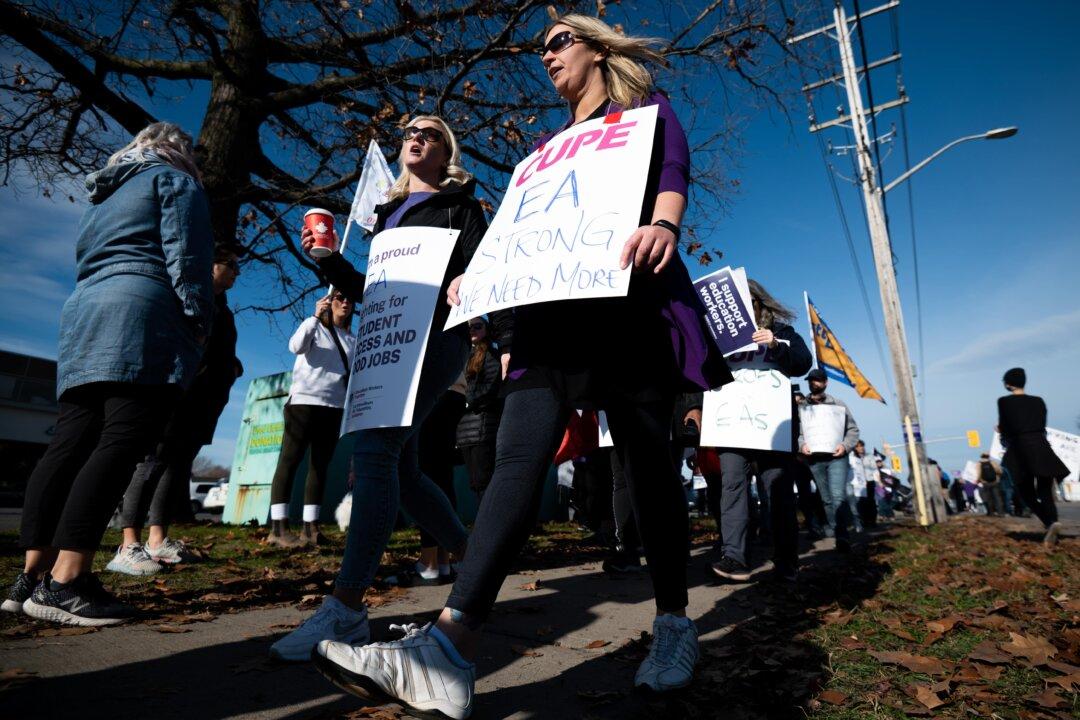Ontario’s labour relations board is set to hear another day of testimony on the government’s application to stop job action from thousands of education workers who walked off the job on Nov. 4.
The board began hearing arguments on Nov. 3 after Education Minister Stephen Lecce filed an application following the proclamation of the Keeping Students in Class Act the same day.





